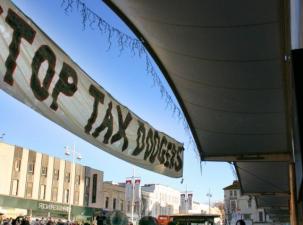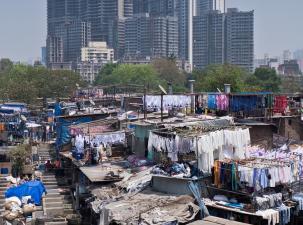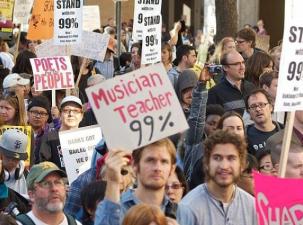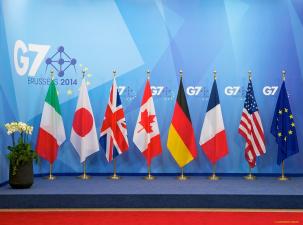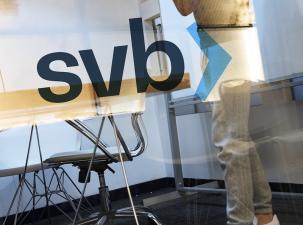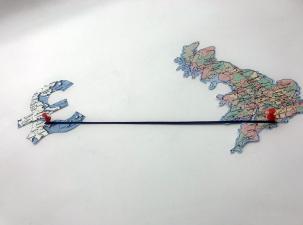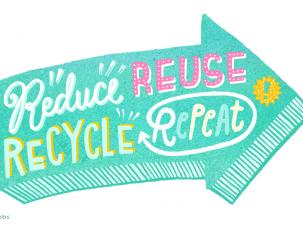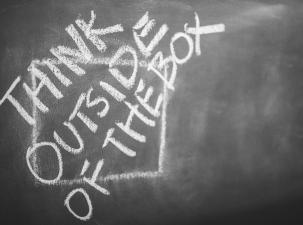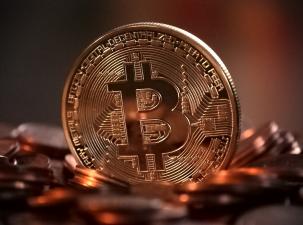Economy
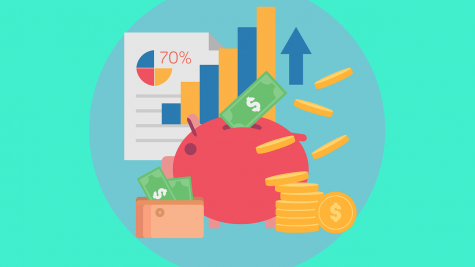
Guide to GLOBAL ECONOMICS & Sustainable Alternatives
This unique guide to all thing's economy explores the top issues with today's profit hungry financial systems, and exposes the dangers of our capitalist society. We offer viable solutions and alternatives which shift the focus from corporate profits to societal benefit and a greener world.
Our ➡️ platform for economics and business contains over 14,000 resources to key themes in finance, trade, development, as well as exploring issues with overconsumption, globalisation, and inequality. Better World Info envisions a just and sustainable future, one without corporate dominance, greed, and exploitation.
Inequality has become rigged into our economies and the coronavirus pandemic further widen the gap. Since 1995, the top 1% have captured almost 20 times more global wealth than the bottom 50%. Inequality is deadly. Hunger and poor access to healthcare and education leads to the deaths of thousands every day as they are denied their basic rights.
The capitalistic system feeds gender inequality, racism, and the further marginalisation of vulnerable groups. 252 men have more wealth than all 1 billion women and girls in Africa, Latin America, and the Caribbean combined!

This extreme concentration of wealth and power is bad for our planet too. Rich countries are failing to address their part in the creation of the climate crisis, and this is disproportionately affecting the global South. 20 of the world's richest billionaires on average emit 8,000 times more emissions than one billion of the world's poorest people.
“A nation will not survive morally or economically when so few have so much, and so many have so little,” Bernie Sanders.
Search through our handpicked news resources covering economic developments on local and global economy. Explore studies, books, organisations, and initiatives uncovering where things went wrong, and the progressive economic reforms offering change. You can also follow our excellent Twitter lists on Economy, Alternative Economy, Circular Economy, Globalisation and for critical analysis and updates from key financial and business experts, economists, social entrepreneurs, activists, and NGOs.
If you want to learn more, check out our selection of social business & entrepreneurship skills MOOCs for free online courses in economics.
For related topics we recommend checking out our guides to politics, globalisation, sustainability, and environment. We invite German speakers to visit our partner site Bessere Welt Info and the category Wirtschaft for 5,700 links to the world of economics from a European perspective.

Key Issues in Global Economics
Here you can find a wealth of information on how economics effects our everyday lives, and the issues that are created when it is poorly managed. Learn how free trade agreements such as TTIP, Mercosur, and RCEP fuel economic growth but also result in job losses, lack of regulations and workers' rights, a heavy environmental toll, and act as a driver of consumption.
Poor economic management can also lead to recessions, financial crises, and bank crashes. Learn more about the financial and debt crises in the UK, the USA, and Europe, as well as the various Occupy movements where protesters sought to advance social and economic justice, and for bankers and politicians to act in a more moral and ethical way.
Explore other issues such as increasing automation, the use of robots, and the implications for employment. We also delve deep into the impact of rising military spending at the social expense of citizens, and the campaigns such as GCOMS fighting against this siphoning of taxpayer's money.
Developing countries are particularly vulnerable to the effects of corruption, greed, and lack of economic stability. Struggling with high levels of inflation, debt, poverty, and the impact of climate change, poorer countries can fall into further crises, and need assistance in the form of local economic development, microfinance, investment, and foreign aid.
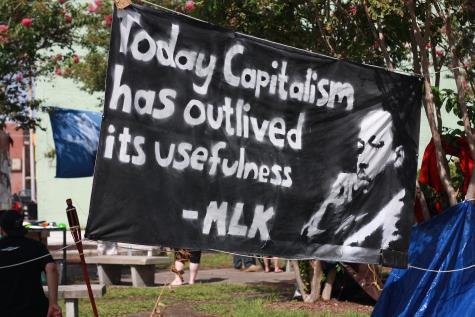
Capitalism and Its Impact - Pathway to Wealth or Disparity?
Capitalism is the economic system whereby societies means of production are owned by private organisations and individuals. Since its early roots, capitalism hurt local economies and led to the spread of colonialism, slavery, and imperialism. Originally praised for driving innovation, wealth, and prosperity, it soon became clear that the benefits of capitalism are rarely equitably distributed. As such, citizens and in particular younger generations are growing increasingly disillusioned with capitalism.
In this section we provide over 3,000 links to essential resources on key issues that are faced by capitalist economies. As a driver of consumption, economists have understood the detrimental environmental effects for decades. This profit-based system is also a huge creator of waste and emissions, and it relies heavily on fossil fuels.
Capitalism also fuels war. The weapons industry and arms trade is a key driver of armed conflict as private weapons contractors and stockholders seek only to line their own pockets. War means profit. The Russian invasion of Ukraine has allowed weapons prices to soar as private brokers who secure arms deals for Ukraine earn 2-4 times more than usual. BAE Systems share prices have risen by 80% since the start of the war and they have seen a 9.5% rise in annual earnings.
We feature past financial crises, banking scandals, and expose soaring financial inequality, now common place across the planet. Of all the G7 nations, the U.S. has the highest level of income inequality, with the wealth gap more than doubling between 1989 – 2016 alone. The U.S. is home to the largest number of the 1% club, and also has the world's largest military budget.
Learn how tax avoidance and tax havens costs developing countries $100 billion a year. It is estimated that the world's elite hold up to $32 trillion in offshore havens. In fact, these unprecedented levels of tax evasion are the leading cause of austerity policies. Find further information on tax dodging in the UK and the U.S. as well as information on tax cuts for the rich, and governmental failures to apply a windfall tax on enormous oil and gas profits.
Austerity measures such as those witnessed in the UK, punish ordinary citizens by raising taxes, and cutting public spending where the poorest are always the first to lose. Luckily, journalists, whistleblowers, and financial crime experts work hard to expose tax leaks such as the Pandora Papers, the Panama Papers, and the 2020 FinCEN files. World leaders, officials, and banking institutions have all been implicated.
Human rights defenders have long claimed capitalism to be inherently exploitative and the cause of numerous rights issues. Due to the profit driven nature of this economy, countries experience periods of stagnant wage growth while company profits soar. The reality of low pay Britain is a classic example of this, and unions in the UK are fighting back with a host of national strikes and industrial action from NHS staff, rail workers, and teachers.
In developing nations, capitalism promotes the use of dangerous and exploitative sweatshops and child labour. Concepts such as fast fashion are driven by materialism, high volume, and low prices. Corporate greenwashing techniques are then used to gloss over the high environmental and human costs of such systems and label them as sustainable.
Find guides to many other top issues such as national debt, anonymous companies, multinationals avoiding regulation, the gig economy, and the new monopolists – Better World Info covers it all.
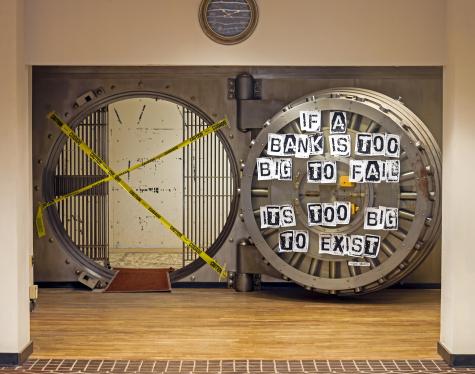
How Broken is the Global Financial System?
The global financial system is made up of banks, insurance companies, stock exchanges, the International Monetary Fund, government treasuries, and the World Bank. It follows a set of rules and practices for borrowers and lenders to use.
Since the invention of banking, control has become massively centralised creating huge amounts of wealth for those connected to the financial system. It has also contributed to massive inequality, and many of the global challenges and risks that we face today.
We explore just how broken the system is, and solutions and reforms for fixing it such as improved regulation, Robin Hood tax, cooperative banking, and curbing the gigantic banking bonus culture.
Use our guide to further understand the global financial system with our handpicked reports, books, videos, expert blogs, and critical news sources. Learn about the main players such as Goldman Sachs, JP Morgan, the Federal Reserve and other central banks, hedge funds, and the regulators and ‘experts’ calling the shots.
We investigate banks as enablers of corruption and fraud including key issues such as privatising profits, the finance lobby, the shadow banking system, commodity market manipulation, the privatisation of public assets, insider trading, and the debate on whether these bankers are simply too big to jail.
Find an extensive guide to various examples of banking scandals and financial crime, including information on the devastating 2008 financial crisis, the recent Credit Suisse crisis, the Silicon Valley Bank collapse, and the next financial crisis in the making.
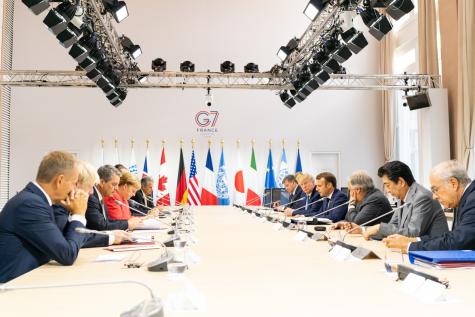
Key Actors in the Global Economy - Who Runs the World?
Ever wondered who pulls the strings in shaping the global economy? Our must-have guide to key global players features in-depth analysis of the G7 and G20 – made up of the planet's wealthiest countries, and responsible for controlling international financial stability, trade, securing growth, and their own prosperity.
You can follow the actions of the World Bank whose goals are to reduce poverty and improve living standards, but are widely criticized for promoting deregulation, inflation, dependency, and harming development instead.
We also feature critical analysis of the IMF, WTO, and OECD, who all play big roles in controlling and regulating the economy and our social wellbeing. Find extensive information on the World Economic Forum, the elitist gathering for the rich and powerful, and the OPEC who influence not only the global oil market, but also hold great weight regarding international relations, geopolitics, and national economics.
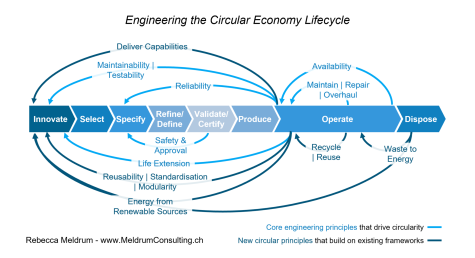
How the Alternative Economy is Redefining Prosperity
Better world Info advocates for a world where an alternative economy thrives, fuels sustainability, inclusivity, and greater equality. Get informed on the latest developments regarding the circular economy, the doughnut economy and the shift towards green economy and degrowth. Find information on ethical investing and banking, green careers, cooperatives, and the role of women in economy.
Proposals such as the global minimum corporate tax rate have been implemented to reign in multinationals and tackle corporate tax avoidance, and concepts such as Universal Basic Income are gaining much needed attention.
We feature a special category on cryptocurrency, the decentralized digital currency currently shaking up traditional monetary systems. An exciting new way to purchase goods, and invest, but heavily criticised for its speculative nature, environmental impact, and links to fraud and organised crime.
Alternative lifestyles go hand in hand with the principles of a greener economy. Find out how you can become an ethical consumer, begin on the road to a simpler life, learn about anti-consumerism and minimalism, and see how many people are already living their lives in this way.
Living more sustainably has been linked to increased happiness and more free time to do the things you really enjoy. The movement against corruption, greed, inequality, and power is growing every day - see how you can get involved by checking out our blog ‘Less is More’.
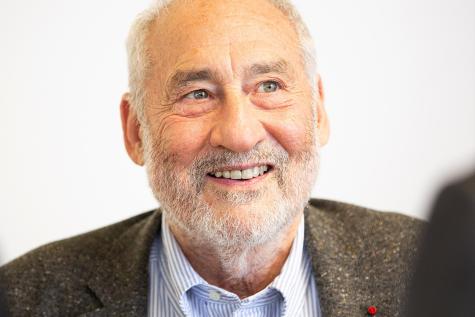
Inspiring Economists Redefining Economic Thinking
Here is our top selection of exemplary economists and economic thinkers whose contributions to finance have created positive social change. Learn about Nobel Prize winner Joseph Stiglitz who fights against corporate tax avoidance and inequality by calling for reforms and a global minimum corporate tax.
Find an excellent guide to the work of Bangladesh social entrepreneur Muhammad Yunus whose belief that credit is a fundament human right and concept of microcredit has helped thousands of low-income people start their own businesses.
Standing up for labour rights and the reduction of economic inequality in the U.S. Robert Reich the former US secretary of labour pushed for higher wages, greater investment in workers, and job creation.
Discover more on the work of Austrian Right Livelihood Award winner Leopold Kohr, who challenged centralised financial structures and advocated for the localisation of power and problem solving through his concept of 'Small is Beautiful'.
By highlighting and celebrating the work of these progressive thinkers, reform pioneers, social entrepreneurs, and financial experts thinking outside the box, we aim to inspire hope for a more just economic system where social uplift, not profit for the few, is the primary motivation.

Economics for a Better World
Current financial systems promote greed and materialism. They are unsustainable and are driving inequality and marginalisation. Global financial literacy remains low, with just one in three people demonstrating an understanding of basic financial concepts. This lack of knowledge makes it difficult for people to make informed choices, build wealth, and control their own finances. Financial literacy education is an important tool for empowering citizens and enabling greater social mobility.
Financial services are the least trusted sector in the world. Riddled with scandals, corruption, failures, and risky decision making, it comes as no surprise that this lack of trust is a major barrier to economic growth and stability. Such concentrated levels of power breeds mistrust, high unemployment, political unrest, and recessions.
Current systems mean that one banking failure can decimate the entire system. Why are we operating on a system with such huge levels of risk and fragility? Why are banks seemingly immune to punishment and reprobation?
There is a great need to decentralise the financial system, level the balance of power, and enforce stricter regulations. We must demand the end of impunity, support local cooperatives, and embrace a more circular, sustainable, and just economy.
“Anyone who believes in indefinite growth on a physically finite planet is either mad, or an economist,” Sir David Attenborough.
Author: Rachael Mellor, 24.07.23 licensed under CC BY-ND 4.0
For further reading on Economics see below ⬇️
Info on Economy
Hot Topics
Twitter list
Tweets by @BetterWorldInfo/lists/economy
Hero of the Month
Thomas Piketty
French economist that dedicates his work to the study of income inequality. He’s the author of the best-selling book "Capital in the Twenty-First Century", which is an innovative view on how capitalism and the current wealth distribution contribute to economic inequality.

Featured Organisation of the Month
The New Economics Foundation
The New Economics Foundation is a people-powered think tank in the UK. They offer an agenda for people to take more control over the decisions and resources that affect their lives today and a plan for how we can all begin to change the whole system tomorrow.

Featured Online-Resourse
Exploring Economics
An open-source e-learning platform, gives you the opportunity to discover & study a variety of economic theories, topics, and methods for free. It aims to enrich economic teaching as well as to promote self-criticism, reflection, pluralism and openness within economics.

